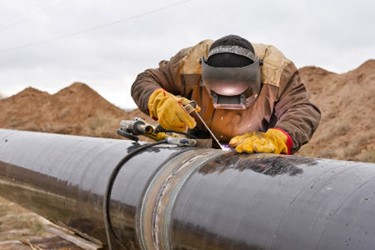EPA Targets Water Quality Reviews That Stifle Energy Infrastructure


In the latest water quality debate between local regulators and the Trump administration, the U.S. EPA has proposed a rule that may be intended to pave the way for new natural gas pipelines despite environmental concerns.
“A proposed U.S. Environmental Protection Agency regulation intended to prevent states from using water quality reviews to block natural gas pipelines and other energy infrastructure is running into stiff opposition from states, tribal nations and environmental groups — in a sign of possible legal challenges ahead,” according to S&P Global. “The EPA regulation proposed in August attempts to clarify the scope and timing of state reviews and to cut back on what it casts as ‘confusion’ leading to delays.”
The proposal appears to be just the latest point of contention in a prolonged battle between the Trump administration and state regulators blocking natural gas infrastructure. In New York, for instance, Trump himself has taken up the fight on behalf of natural gas projects.
“Declaring that New York state is ‘sitting on a gold mine of energy,’ President Trump expressed his desire for the second time in less than three months for the Empire State to allow fracking and pipeline construction within state lines,” Fox News reported recently.
When the comment deadline for the proposed rule passed late last month, attorneys general from 22 states and the District of Columbia submitted written objections asking the EPA to withdraw it, citing threats to state power.
The EPA has stated that it will work with states and other stakeholders to develop the proposal. Those in the power industry, however, seem to mostly support the potential rule change.
“The proposal … won support from pipeline developers, gas utilities, building unions, construction contractors, energy producers, coal and hydropower groups, and other business groups,” per S&P Global. “[Legislators] participating in the Energy Producing States Coalition welcomed the proposal, contending activists at permitted agencies, often in coastal states, have ‘wrongly inserted politics’ into routine permitting decisions to thwart projects ‘for reasons entirely unrelated’ to the plain language of federal statutes.”
To read more about the rules that affect water and wastewater treatment operations, visit Water Online’s Regulations And Legislation Solutions Center.
